Kazakhstan in the crosshairs: Sagimbayev on threats from within and beyond
Peaceful skies are no coincidence, but the result of daily and often invisible work. In an exclusive interview with Kazinform News Agency on the occasion of National Security Agencies Day, Head of the National Security Committee (NSC) Yermek Sagimbayev sheds light on the key threats facing Kazakhstan today: terrorism, religious extremism, transnational crime, cyberattacks, and external influence. Why are criminals turning to neural networks? How do intelligence and counterintelligence operate in the context of shifting geopolitics? Who is behind the billions in economic losses and how is the NSC recovering them? What lies behind the words, “We are always one step ahead of the threat”? Find the answers in this interview.
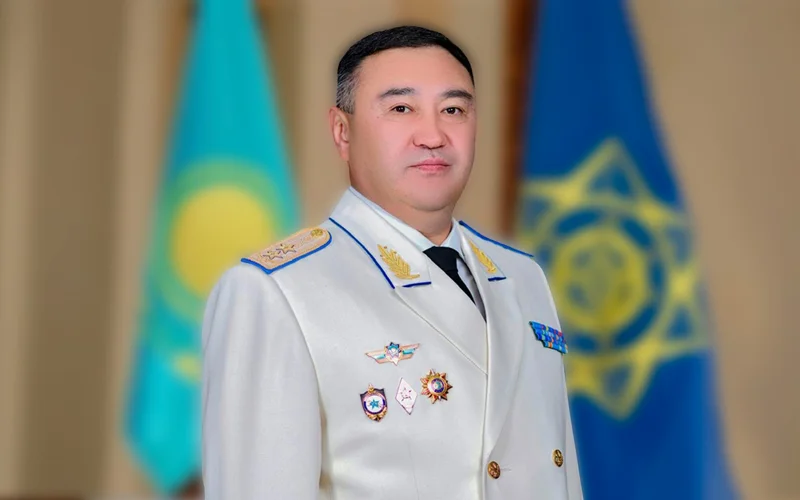
National security issues always attract heightened public attention. On the eve of your professional holiday, National Security Agencies Day, could you tell us about the main security challenges today? And what role does the NSC play in addressing them?
— The modern world has become much more complex and far less predictable. We see this every day in the course of our operational work. The threats faced by security services are increasingly diverse and often interconnected. On the one hand, traditional challenges remain, such as international terrorism and religious extremism, illegal migration, transnational crime, and drug trafficking.
At the same time, new threats are emerging, driven by the widespread adoption of digital technologies, including the integration of artificial intelligence into nearly every sphere of life. Criminal and terrorist groups are actively using these tools. We also cannot ignore the broader geopolitical landscape. Events in one region can instantly affect the security of others.
As an active participant in global affairs, Kazakhstan is not immune to these challenges. Political pressure is increasing, there are attempts to influence public consciousness, and issues of interethnic and regional tension are being deliberately stirred. At the same time, processes of cultural, moral, and demographic development are being undermined.
In this context, the National Security Committee’s main role is to ensure socio-political stability in the country, safeguard its territorial integrity, and preserve peace and harmony—key pillars of any sustainable and secure state.
I would emphasize that security agencies are most effective when their work goes unnoticed. Still, it is important to speak about this work, so that the public understands: even in times of peace, national security remains under threat, and protecting it requires constant, meticulous, and highly professional effort.
Religious extremism and terrorism remain pressing issues. What measures are currently being taken by Kazakhstan’s security services?
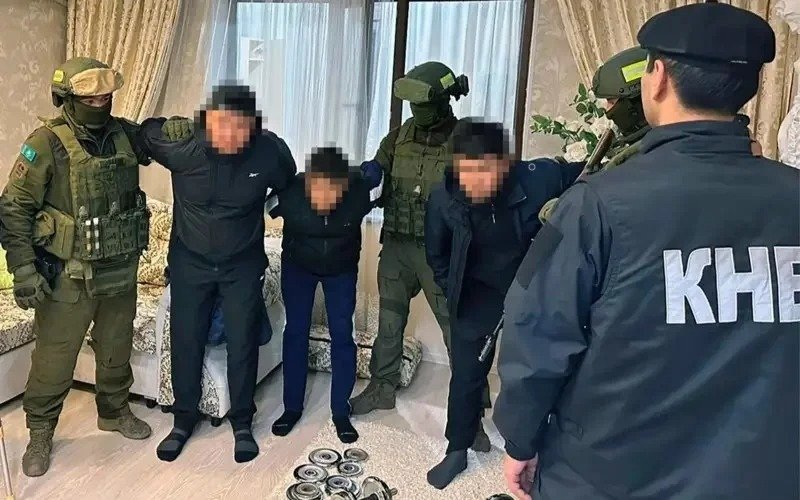
— You’re absolutely right. The relevance of this issue remains high. International terrorist and religious extremist organizations continue in their attempts to involve Kazakh citizens in radical ideologies.
Some individuals fall under the influence of destructive propaganda, making them vulnerable to extremist and terrorist ideology. This typically happens under external influence, primarily through the Internet. For the National Security Committee, counterterrorism and the prevention of terrorist and other violent acts in Kazakhstan remain top priorities.
For example, this year, residents of Aktobe and Atyrau regions, as well as the city of Shymkent, were found guilty and sentenced to various prison terms for promoting terrorism, recruiting individuals to engage in terrorist activity, and illegal possession of firearms. Investigations revealed that the defendants had encouraged others to join foreign terrorist groups and take part in combat, promoting violence under the guise of religion. Their radical views were reinforced through extremist content accessed online. These court decisions have now entered into legal force.
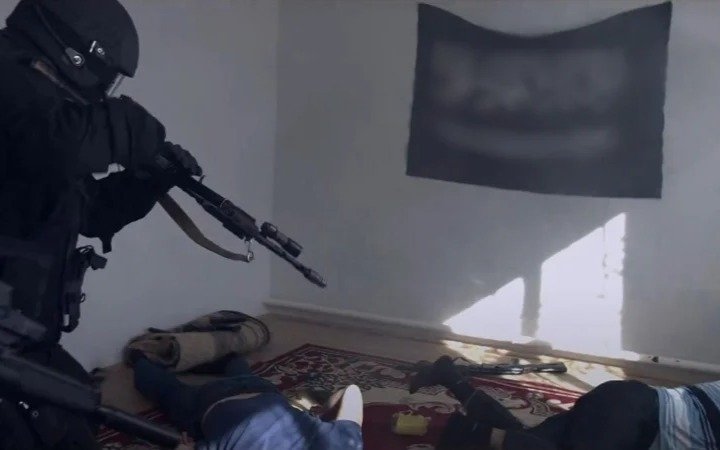
Since the beginning of the year, 59 individuals have been detained and more than 60 convicted for such crimes. In light of the threat of foreign radicals infiltrating our country, measures have been taken to track them across entry/exit and migration channels. Since the beginning of 2025, entry has been denied to about 3,500 individuals suspected of terrorism. Attempts to enter the country by 246 foreign nationals involved in terrorist activities were prevented. 16 individuals wanted in their home countries for terrorist or religious extremist crimes were identified. Around 800 migrants supporting extremist ideologies have been detected, and steps have been taken to deport them.
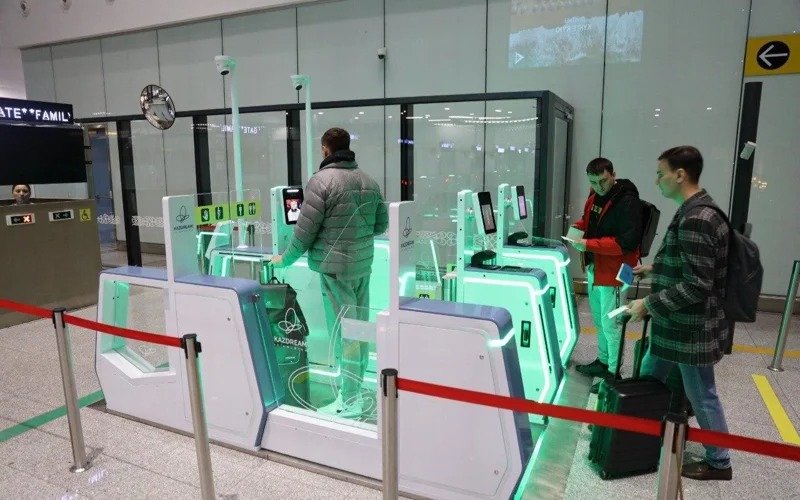
I’d like to emphasize that preventing radical ideologies in society requires broad interagency coordination. That’s why, in cooperation with other authorized government bodies, we are implementing a comprehensive set of measures to counter the ideology of terrorism. Our joint efforts have resulted in the identification and blocking of more than 9,000 online materials promoting terrorism and extremism.
Today, under the framework of the National Anti-Terrorism Center, a nationwide system for counterterrorism coordination has been built. This includes state and local executive bodies, and continuous improvements are being made in both legal and logistical support for this work. Since the beginning of the year, more than 400 anti-terrorism drills and training exercises have been conducted. Additionally, over 95,000 critical infrastructure workers have been trained on how to respond during terrorist attacks.
As you may know, the final phase of the national operational-tactical exercise “Naiza-Antiterror 2025” took place this June in the Kostanay region.
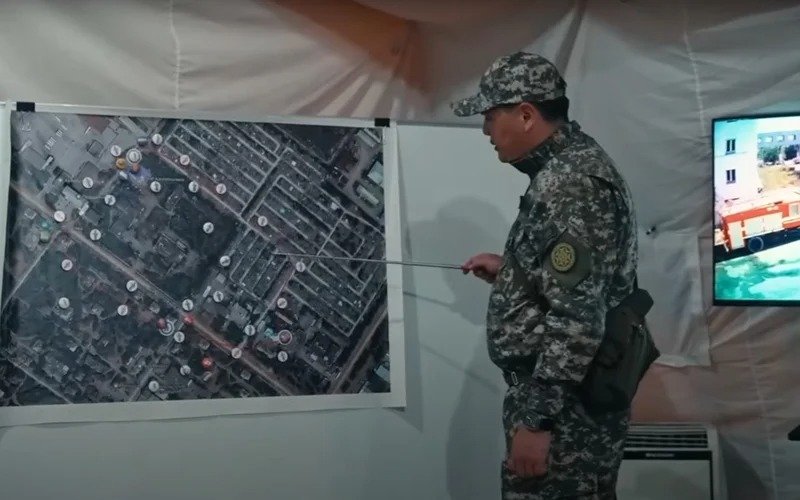
During the exercise, the readiness of government agencies to respond to “hybrid” terrorist threats was tested. In spite of both global and domestic challenges, the Committee continues to focus on defending national interests, the constitutional order, and public security. One of our ongoing priorities is to combat ethnic extremism, separatism, and the involvement of Kazakh citizens in foreign armed conflicts. Thanks to the measures taken, we’ve been able to prevent destructive incidents. In addition, we are working closely with law enforcement agencies to identify individuals inciting ethnic hatred and radical provocateurs.
As you noted, the global geopolitical situation also poses risks to Kazakhstan’s economy. What specific challenges are being observed in this area?
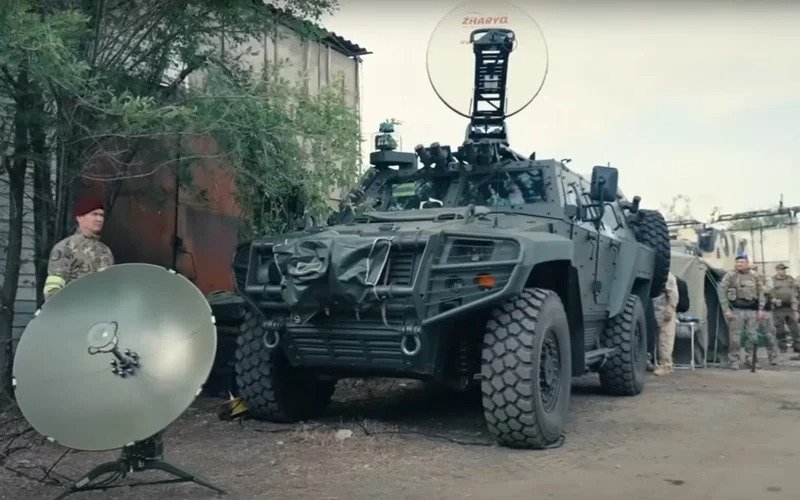
— Undoubtedly, global economic upheavals have far-reaching consequences and directly impact Kazakhstan’s economy. Under these conditions, the Committee’s efforts are aimed at supporting the country’s leadership in maintaining economic stability and ensuring the full-scale implementation of planned reforms. We conduct proactive and comprehensive threat assessments in this sphere and bring critical issues concerning the development of economic sectors to the attention of relevant authorities. Proposals and systemic measures are developed to mitigate these risks. We constantly monitor matters related to socio-economic development, fiscal policy, and efforts to curb the shadow economy.
On a regular basis, we identify opaque schemes in the raw materials and processing industries, and expose and neutralize attempts by foreign actors to influence domestic decision-making processes. The NSC also supports national companies and systemically important enterprises in promoting Kazakhstan’s economic interests, especially in large infrastructure projects and international trade cooperation.
For example, based on NSC findings, the illegal activity of the company “Eleas” and several officials from the Ministry of Health was recently halted. They had organized the smuggling of finished pharmaceutical products of unknown origin from a foreign country under the guise of raw materials. These were then falsely passed off as domestically produced and sold across Kazakhstan. The court determined damages amounting to 26 billion tenge.
We also disrupted illegal actions by the former head of KazAvtoZhol JSC, who orchestrated the embezzlement of over 300 million tenge in budget funds during the reconstruction of a national highway. All individuals involved have been identified and sentenced to various prison terms. These are just a few examples. Our pace of work remains consistently high.
In total, over the first six months of this year, the combined effect of the NSC’s efforts to ensure economic security exceeded 3.8 trillion tenge, with 254 billion tenge recovered for the state budget.
What efforts are being made to combat transnational crime, including drug trafficking and the illegal arms trade?
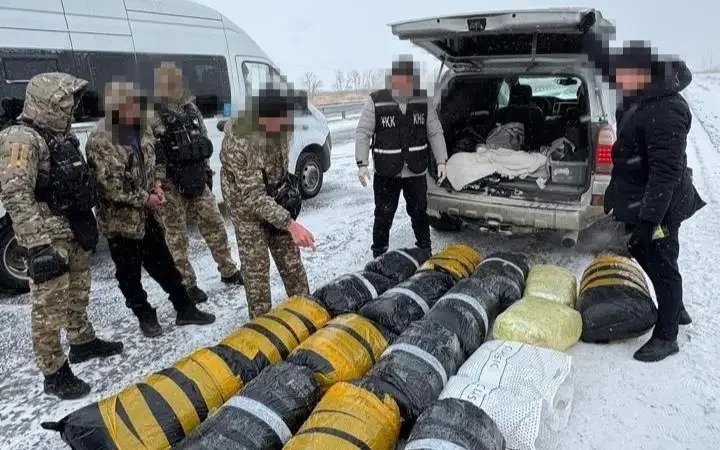
— As the President of the Republic of Kazakhstan emphasized during the expanded meeting of law enforcement agencies, the guiding principle for the security sector remains “Law and Order.” Accordingly, our main goal is to shield society as much as possible from the harmful impact of transnational crime and the drug trade.
In terms of definitive results, I can say that since the beginning of this year, in cooperation with the Ministry of Internal Affairs, we have dismantled 15 criminal groups, detained 218 of their members, and arrested 73 individuals. For instance, in June this year, in the city of Uralsk, a group suspected of extorting money from entrepreneurs was neutralized. Eight people were detained, and two were placed in custody by court order. A pre-trial investigation is currently underway.
Alongside this, in coordination with the police and the prosecutor’s office, 351 firearms, 57 grenades, and more than 5,500 rounds of ammunition were seized, some of which had been stolen during the January 2022 events. These actions have reduced the risk of such weapons ending up in destructive hands and being used against the interests of society and the state.
We are also seeing intensified narco-expansion that poses a direct threat to national security and aims to undermine public health, with transnational networks playing a leading role. The fight against the drug trade is shaped by three key elements: international drug trafficking, the distribution and production of synthetic drugs, and the existence of a domestic raw material base for illegal cannabis processing.
In this regard, we have dismantled 13 drug labs and disrupted 29 international and regional drug trafficking routes. One example is a joint anti-drug operation conducted in May this year with Uzbekistan’s State Security Service. As a result, a large shipment of opium and hashish being transported from an Asian country through Uzbekistan into Kazakhstan was intercepted. Four members of the transnational drug syndicate were arrested, and 82 kg of opium and 130 kg of hashish were confiscated. The street value of these drugs could reach approximately $2 million.
In total, over the past six months, more than 3.4 tons of narcotic substances and around 7.5 tons of chemical precursors have been seized. As you can see, there is a great deal of work to be done, but there are still unresolved challenges as well. We will continue to address them and improve our operations.
You mentioned cyber threats as a relatively new challenge. What steps is the Committee taking in this area?
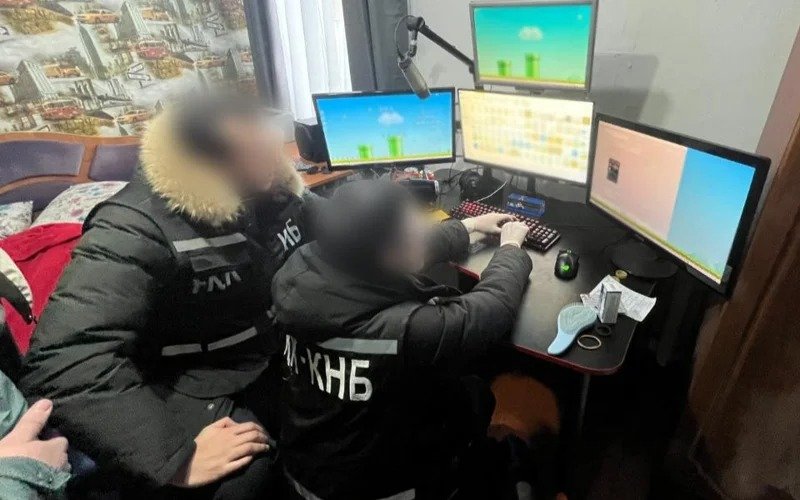
The widespread adoption of modern technologies has become an integral part of our daily lives, bringing with it undeniable advantages. However, there is a downside as well. Technological solutions are increasingly exploited by cybercriminals, causing significant damage to digital infrastructure. In line with the President’s instructions, the National Security Committee, together with the Ministry of Internal Affairs (MIA), the Ministry of Digital Development, Innovations and Aerospace Industry (MDDIAI), and the Prosecutor General’s Office, is working to improve mechanisms for combating cybercrime.
At the NSC’s initiative, proposals have been developed to amend the Criminal and Criminal Procedure Codes, as well as the Law of the Republic of Kazakhstan “On Operational and Investigative Activities,” drawing on international experience in this field. This work is already yielding results.
For instance, in cooperation with the prosecutor’s office and the police, instances of unlawful use of subscriber numbers have been suppressed in several cities. As part of the fight against fraud, the NSC and MIA have carried out joint operations in 12 cities since the beginning of this year. These efforts led to the arrest of groups, including both Kazakhstani and foreign nationals, and the seizure of more than 76 SIM-box devices used in fraudulent schemes.
The NSC is also investigating criminal offenses related to information and communications technologies, including the unauthorized modification of confidential data stored in various databases. Overall, more than 40 criminal cases have been initiated in connection with these and other violations.
In the field of cybersecurity alone, over just six months, 965.4 million cyberattacks and more than 3,500 DDoS attacks targeting the country’s critical infrastructure have been repelled. In addition, nearly 1,000 phishing websites were identified and blocked. Together with the internal affairs agencies, 68 incidents involving false terrorism messages were investigated, and appropriate legal actions were taken. 66 Telegram users involved in the distribution of narcotic and psychotropic substances were identified, as well as 325 bank cards used by drug traffickers to collect payments. 49 individuals were identified for promoting suicide or inciting self-harm through online platforms.
Particular attention is given to preventive and proactive measures. To develop effective response mechanisms to cyber threats, annual exercises are held, which include penetration testing, locating simulated attackers, detaining them, and conducting investigative actions to gather digital evidence.
I want to emphasize that the Committee fully recognizes the gravity of cyber threats, and we are taking timely and targeted action in response.
Counterintelligence and intelligence activities typically go unnoticed by the public. Could you shed some light on their work?
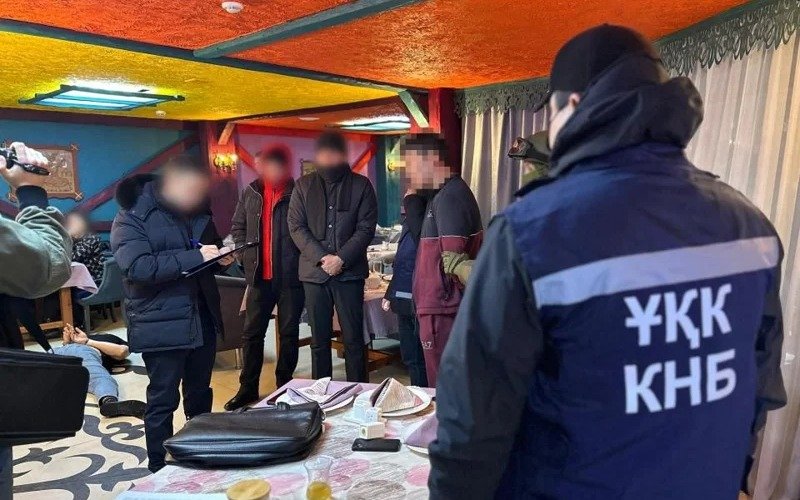
—You’re right, the nature of foreign intelligence and counterintelligence means their achievements often remain out of public view. Nevertheless, their work is vital to national security. Kazakhstan’s foreign intelligence service focuses on obtaining and analyzing advanced information that can impact the country’s national interests across political, economic, military, and technological domains.
As for counterintelligence operations, I can state with confidence that efforts aimed at undermining Kazakhstan’s political stability, economic integrity, and defense capabilities are being intercepted in a timely manner. Daily work is being carried out to identify and block attempts by foreign entities to involve Kazakhstani citizens in illegal activities. Another key area of counterintelligence is the fight against illegal migration. In this regard, we actively cooperate with the intelligence agencies of neighboring states.
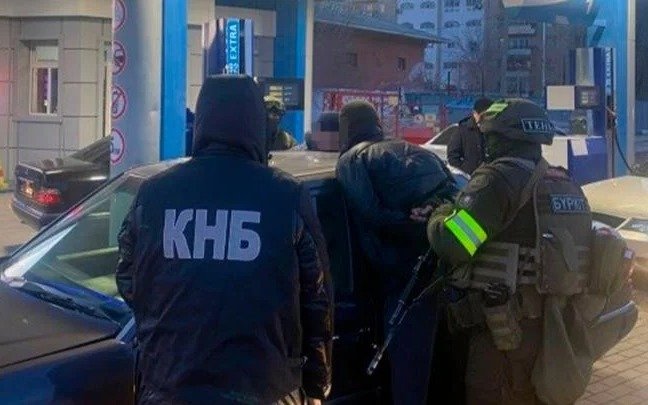
Our intelligence and counterintelligence officers are not seeking recognition. Their mission is to ensure peace, stability, and a secure future. The fact that the people of Kazakhstan are able to live and work in peace is proof that these missions are being successfully fulfilled.
Does the current level of border protection meet today’s security demands? What challenges are facing border guards?
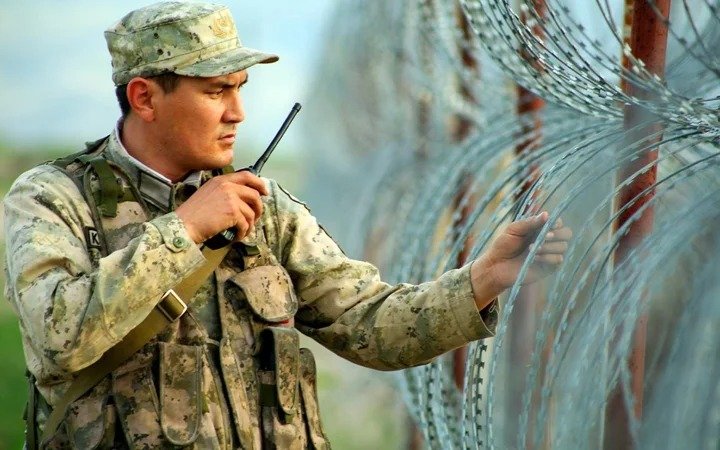
One of the top priorities in ensuring national security remains the protection of the State Border of the Republic of Kazakhstan. In light of ongoing threats such as terrorism, illegal migration, and drug trafficking, the operations of the Border Service are constantly being improved. Today, the Border Service is more mobile and effectively responds to emerging challenges, reliably protecting Kazakhstan’s frontiers.
Since the beginning of this year, more than 14,600 violations of border regulations have been recorded, 475 attempts to smuggle weapons and ammunition have been prevented, and illegal transportation of currency exceeding 14 billion tenge has been stopped.
At the same time, advanced technologies are being introduced. Automated border control systems have been launched at the air checkpoints in Astana and Almaty, as well as at the Kordai land checkpoint. Control measures have been strengthened through the use of artificial intelligence and automated databases, and this work will continue along the entire perimeter of the State Border.
With the support of the Government, work is underway to build modern infrastructure at 10 land checkpoints. Once completed, these facilities will function efficiently, flexibly, and securely using state-of-the-art monitoring and situational analysis tools. All checkpoints are being integrated into a unified digital system. This will enable rapid detection of violations and speed up the processing of travelers. The main goal is security without excessive bureaucratic barriers—an especially important factor for developing cross-border trade and tourism.
That said, I must point out that there are still some infrastructure and engineering challenges in border management. Overall, equipping and upgrading the border is a complex and resource-intensive process. This work is being carried out in stages.
A new Anti-Corruption Service was recently established within the Committee. Could you briefly describe its key areas of focus?
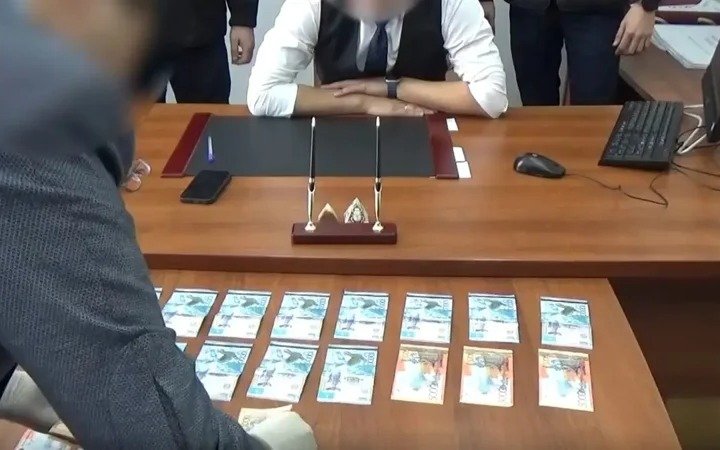
— As is known, by Decree of the President of the Republic of Kazakhstan, the former agency was reorganized, and a new service was created within the structure of the National Security Committee (NSC). I would emphasize that this decision carries strategic importance. The integration of anti-corruption functions into the NSC enables the fight against corruption to be elevated to a fundamentally new level.
Combining the Committee’s analytical, operational, and technical capabilities with anti-corruption tools gives us more resources to identify and suppress large-scale, systemic abuses. This allows us to act not only with pinpoint precision but also comprehensively—to address not just the consequences, but also the root causes.
We have developed a step-by-step action plan in accordance with the presidential decree, including the drafting of the necessary legal framework. We are working with the Government and the Agency for Civil Service Affairs to transfer the functions and powers of the reorganized body. It is a complex, multi-stage process. At the same time, despite ongoing transitional work, the Service is fully operational and has not paused its activities for a moment.
As the President of the Republic of Kazakhstan rightly noted, the systematic fight against corruption is absolutely essential. The strengthening of law and order must form the foundation for combatting this evil and for defending the rights and freedoms of citizens. Without achieving this, it is impossible to build a just state. In short, the goal is clear—we will get the job done.
How are personnel selected for the Committee? What are the key selection criteria? What professional backgrounds are in demand? And is physical fitness important for candidates?
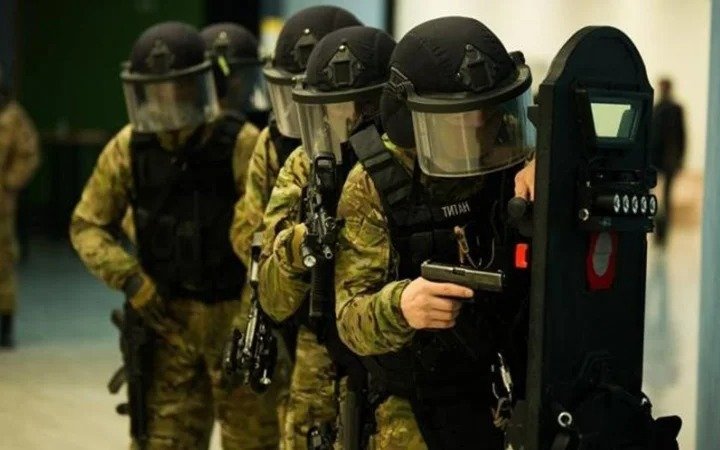
— Human resources are the foundation of any organization. But for the Committee, this is not just an important function—it’s a strategic priority. The safety of our state depends on who joins our ranks and how we train them. Currently, we have two specialized higher education institutions within our system: the NSC Academy and the NSC Border Academy. Just recently, new classes of young officers graduated from both institutions.
We are continuously integrating new technologies, applied methodologies, and real-world experience into the training of future officers. The selection process for the NSC follows a strictly defined procedure. Candidates must be citizens of Kazakhstan who meet a range of criteria—from education and physical fitness to moral resilience and analytical thinking.
Modern challenges set new requirements. In the digital age, cyber and information security are becoming increasingly important. That’s why the NSC is actively recruiting specialists in IT, telecommunications, and digital analytics. A full list of requirements and conditions for joining the service can be found on the official NSC website.
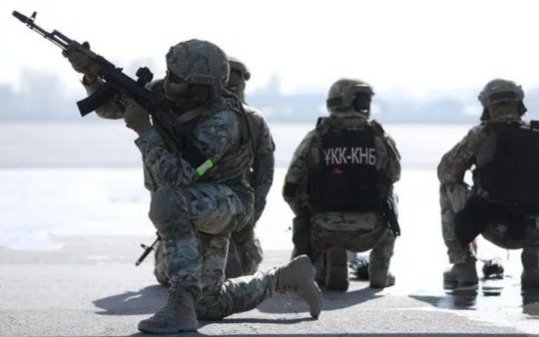
What would you like to wish your colleagues on National Security Agencies Day?
— On National Security Agencies Day, I would like to congratulate all my colleagues and veterans on our professional holiday. Thanks to your dedication, we maintain peace and stability in society, prevent threats, and create the conditions necessary for the sustainable development of our country. I sincerely wish you good health, happiness, well-being, and continued success in your work.
